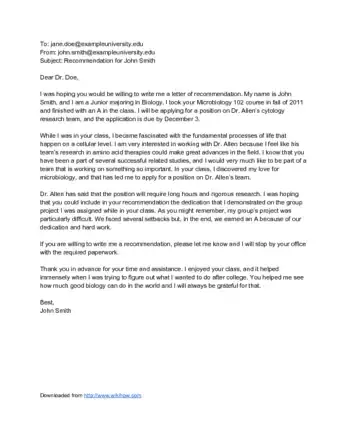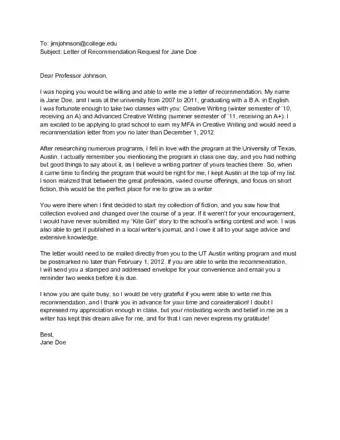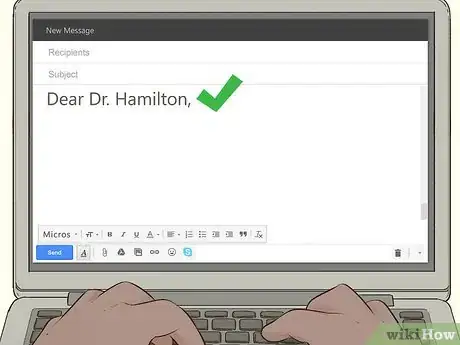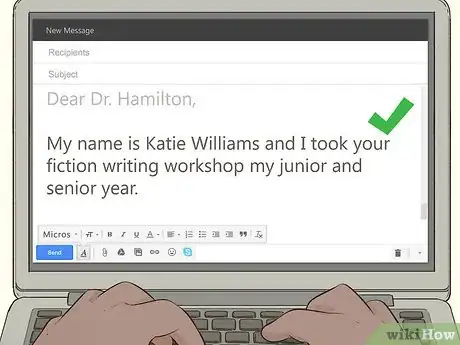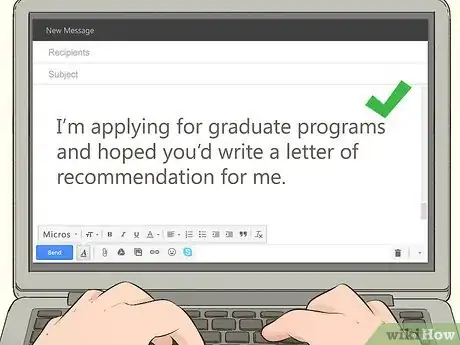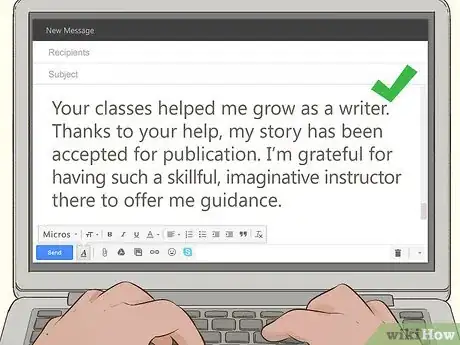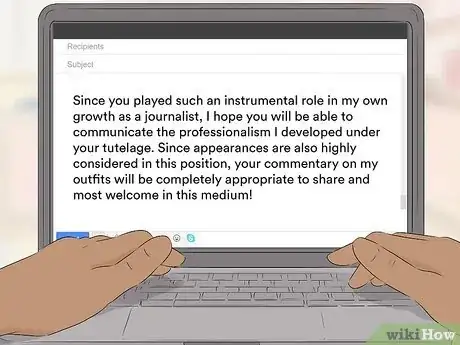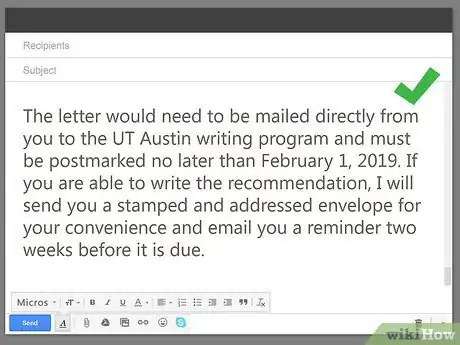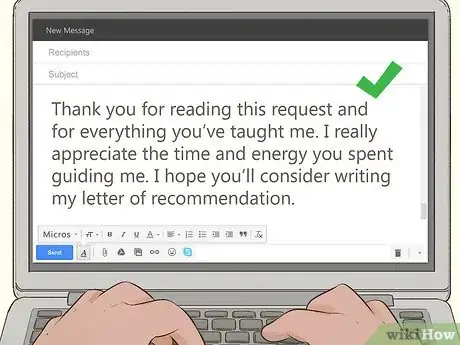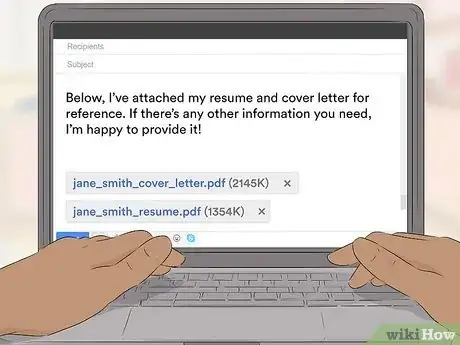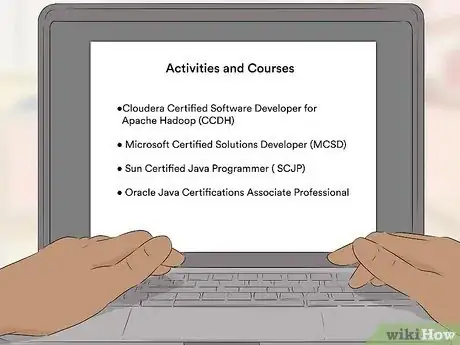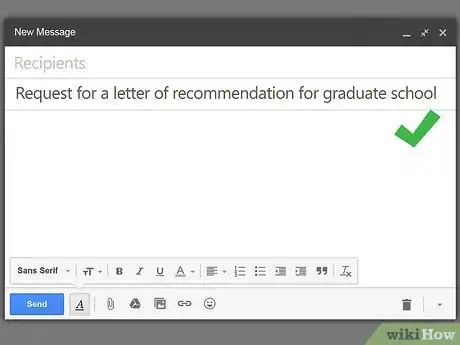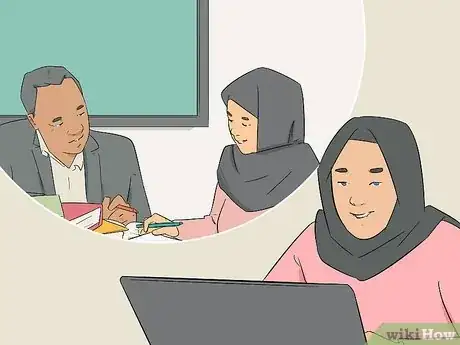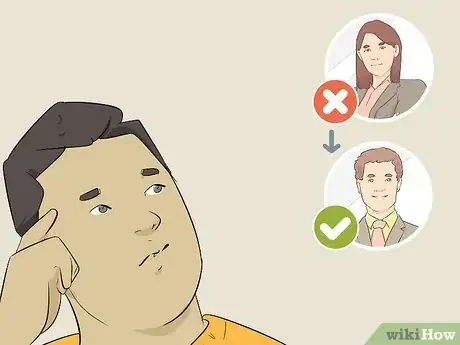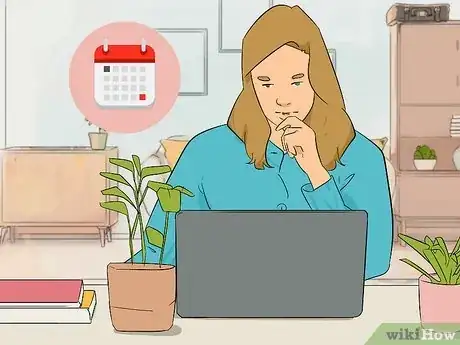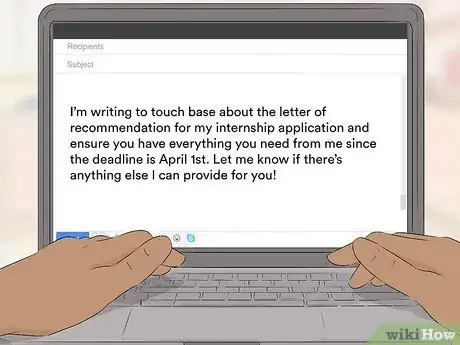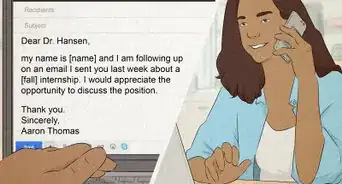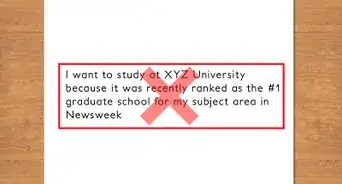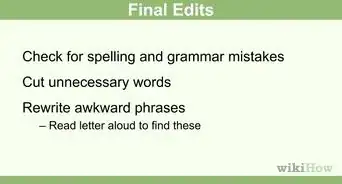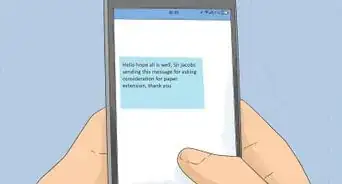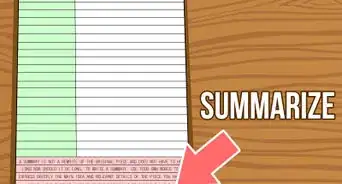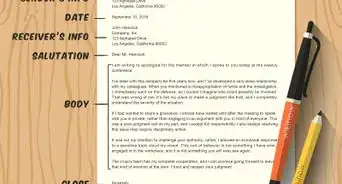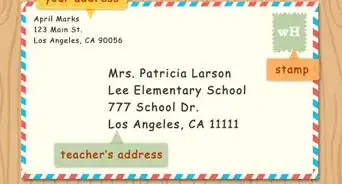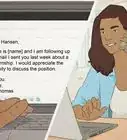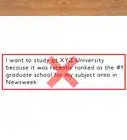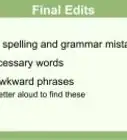This article was co-authored by Alexander Ruiz, M.Ed. and by wikiHow staff writer, Glenn Carreau. Alexander Ruiz is an Educational Consultant and the Educational Director of Link Educational Institute, a tutoring business based in Claremont, California that provides customizable educational plans, subject and test prep tutoring, and college application consulting. With over a decade and a half of experience in the education industry, Alexander coaches students to increase their self-awareness and emotional intelligence while achieving skills and the goal of achieving skills and higher education. He holds a BA in Psychology from Florida International University and an MA in Education from Georgia Southern University.
There are 7 references cited in this article, which can be found at the bottom of the page.
wikiHow marks an article as reader-approved once it receives enough positive feedback. In this case, 85% of readers who voted found the article helpful, earning it our reader-approved status.
This article has been viewed 5,828,504 times.
Asking for a letter of recommendation can feel stressful, but don’t worry: we’ve got all the tips you need to craft a great email. Plus, applying to graduate programs, scholarships, internships, and jobs are all part of the college experience, so your professor is used to writing letters of recommendation. So long as you’re polite and give them plenty of advance notice, they’ll be happy to help you! Read on for a step-by-step guide to asking for a letter of recommendation via email, complete with examples.
Things You Should Know
- Begin your email with a polite greeting and introduction. Then, explain what you need, why you chose this professor, and the letter’s due date.
- Write a strong subject line that tells the professor why you’re emailing them and attach the cover letter and resume used in your application for their reference.
- Choose a professor who will most likely give you a glowing recommendation and contact them 5 to 6 weeks in advance.
Steps
Sample Emails
Writing the Email
-
1Greet your professor using their proper title. Begin your email just like you’d write a letter, and make a great first impression with a proper salutation like “Dear” or “Good afternoon.” Unless you’re on a first-name basis, it’s also good etiquette to address your professor with their professional title and last name.[1]
- Begin an email request with “Dear Dr. Hamilton” or “Good morning, Dr. Johnson.”
- If you’re not sure what your professor’s preferred title is, look up your class syllabus on their website (or the school’s website).
-
2Re-introduce yourself to refresh your professor’s memory. Even if you and your professor are on good terms, use the first 1 or 2 sentences of your request to remind them who you are. Give them your name, the classes you’ve taken with them, and any extracurricular or one-on-one activities you’ve done together too. Keep this section concise and get right to the point![2]
- “My name is Katie Williams. I took your fiction writing workshop my junior and senior year, and you helped me outline my senior capstone project.”
Advertisement -
3Explain the purpose of your email and why you need a letter. Tell your professor what you’re applying for, with details about the educational program, internship, or job, and let them know that the application requires a letter of recommendation. Avoid starting a tangent or talking about other unrelated things; stay on task and show your professor that you mean business.[3]
- Use assertive and specific language to project confidence. Rather than asking, “Can you write a letter of recommendation?” ask your professor for the type of letter you want with words like “strong” or “compelling.”
- “I’m applying to UCLA’s graduate program for Film and Television, and I was hoping that you’d write a compelling letter of recommendation for me.”
-
4Tell your professor why you want a letter from them. Spend the next paragraph explaining how this professor impacted your life, what you learned from them, and why you asked them for a letter. You can also tell them a little more about yourself, why you’re applying for this particular position, and how you think their recommendation will help you get accepted.[4]
- Add a little flattery to your request! Your professor might be more enthusiastic about writing you a letter as a result.
- “Your classes helped me grow as a writer. Thanks to your help, my story has been accepted for publication. I’m grateful to have such a skillful, imaginative instructor to offer me guidance.”
-
5Mention anything you want the letter of recommendation to include. Start a new paragraph and tactfully let your professor know what information and experiences you hope they’ll discuss. Do this by bringing up the qualifications needed for the position or program you’re applying to and reminding your professor of instances that prove your abilities. That gives them starting point when they begin the letter![5]
- “The employer is looking for someone with programming skills and a strong work ethic. I believe you can speak to my drive and commitment after I tackled the app-creation project in your Computer Science class.”
- “This internship calls for a candidate with strong drawing and painting skills. As my advanced painting professor, I was hoping you could speak about the projects I completed in your class.”
-
6Inform your professor of the due date and how to submit the letter. Submissions might be through a physical address or a digital address. If they’re submitting it digitally, provide either the email address or a link where they can upload the letter. Getting your application done in time will be much easier if your professor knows exactly when the letter is due and where to send it.[6]
- “The letter of recommendation is due January 15, 2023. You can send it to myprogram@emailaddress.com.”
Note: If the program has a specific form to use for the recommendation, attach this form, as well. It’s important to make the process as easy as possible for your professor.[7]
-
7Thank your professor whether or not they write the letter. In the last paragraph, let them know you value the time they spent reading your request and the time they’ll spend writing the letter. Thank them for their consideration, and tell them how much you appreciate their guidance thus far as your professor. No matter what happens, an earnest “thank you” is the polite thing to do![8]
- “Thank you for reading this request and for everything you’ve taught me. I really appreciate the time and energy you spent guiding me, and I hope you’ll consider writing my letter of recommendation.”
- Send a follow-up thank-you email when your professor agrees to write the letter, and let them know if you eventually get the job or get admitted. They’ll appreciate hearing from you.
-
8Sign the email with a complimentary close and your name. Below the final paragraph, use a closing statement like “Sincerely,” “Your former student,” or “Best regards.” Then, skip a line. Below that, write out your full name. When you write a formal email, it's important to include a professional conclusion, even if you’re friendly with your professor.[9]
- “Sincerely,
Alex Hudson.”
- “Sincerely,
Sending the Email
-
1Attach a cover letter and resume if you’re applying for a job or internship. When your professor agrees to write the letter, they’ll need additional information about you and your qualifications. Write a cover letter, create a resume, and attach both so your professor doesn’t have to ask for them later on. Mention the attachments in your email, too.[10] For example:
- “Below, I’ve attached my resume and cover letter for reference. If there’s any other information you need, I’m happy to provide it!”
- “With this email, you’ll find my resume, cover letter, and qualifications for the job. Let me know if there’s anything else you need from me!”
-
2Include a summary document listing the activities and courses you took. Write a document that describes each course you’ve taken so far, your grades, any activities and clubs you’ve participated in, and awards you’ve received for your work. Then, attach it to the email so your professor can refer to the document while writing and better understand your qualifications.[11]
- You might also attach samples of your work and a draft of your application essay. This will help your professor tailor your letter to your application.
- Don’t include your formal request as a letter attachment. Write it directly in the body of the email and only attach additional key documents like the summary and resume.
Tip: Making a bulleted list makes it easier for your professor to skim it.
-
3Use a professional subject line that explains the purpose of your email. Let your professor know up front that you’re requesting a letter of recommendation. They likely get a lot of emails, so a professional-sounding subject line will show your professor that the email is timely and important. Plus, a clear and descriptive subject line tells them exactly what to expect from the rest of your email.[12]
- Your subject line might read, “Request for a letter of recommendation for graduate school,” or “Request for a letter of recommendation for a summer internship.”
Choosing a Professor & Timing Your Request
-
1Pick a professor who knows you well and will write a good letter. A letter of recommendation adds flavor and personality to your application. Where resumes offer a technical overview of your experience, letters of recommendation show who you are, what you can do, and what it’s like to work with you. Therefore, your letter will be stronger if the professor has a personal relationship with you.
- Pick a professor who has a good opinion of you, knows you by name, is familiar with your work, and has witnessed your growth as a student.
- It’s also a good idea to ask a professor that you’ve taken more than 1 class with and worked with outside of class; they’ve had more time to form an impression of you.
- Ask yourself: did I perform well in their classes? Did I act professionally and ethically as their student? If the answer is “yes,” go ahead and ask for a recommendation.
-
2Think of a backup plan if your first choice doesn’t work out. Sometimes the professor might decline—not because they don’t want to, but because they feel like know enough about you (or the position you’re applying for) to do the letter justice. That’s okay! Before sending out the first email request, brainstorm several professors you could ask for a letter. If anything happens, just send the next professor a request.[13]
- Remember that it’s impolite to assume a professor will say “yes,” just because you ask. You never know if something will come up, and they won’t be able to do it.
-
3Make your request at least 4 to 6 weeks in advance, if possible. Professors have a lot to do, from grading, teaching, and lesson plans to helping other students. You’re more likely to get a positive response if you give them plenty of time to write a letter! Ask them for the letter well before the due date so they don’t feel rushed and you have time to look for another reference if necessary.[14]
- Double-check the letter of recommendation’s due date since you’ll need to include it in your request. Let your professor know if you’d like the letter sent to you a little early, too.
- Ask one professor for a letter at a time (unless you need multiple letters). It can be tempting to cast a wide net and ask several at once, but it’s better to be considerate of their time and only ask when you need to.
Tip: The best time to ask your professor is near the beginning of the semester.
-
4Follow up with your professor 3 days before the letter’s due date. Give your professor a few days to accept after sending your initial request. Then, once they do, set a reminder to reach out again 3 days before the letter’s deadline. If they haven’t sent over a letter of recommendation by then, check in with a polite reminder and ask them for an update.[15] For example:
- “I’m writing to touch base about the letter of recommendation for my internship application and ensure you have everything you need from me since the deadline is April 1st. Let me know if there’s anything else I can provide for you!”
Community Q&A
-
QuestionI'm applying to a magnet high school, not college, and we're not allowed to choose the teacher who writes our recommendation. The teacher who's writing mine has been on maternity leave for most of the semester. What can I do?
 Tom De BackerTop AnswererContact the school. When teachers are absent, their tasks must be transferred to others. Ask the school who will be providing that for you instead of the absent teacher.
Tom De BackerTop AnswererContact the school. When teachers are absent, their tasks must be transferred to others. Ask the school who will be providing that for you instead of the absent teacher.
References
- ↑ https://voices.uchicago.edu/bridgetocollege/2020/05/28/132/
- ↑ https://voices.uchicago.edu/bridgetocollege/2020/05/28/132/
- ↑ https://voices.uchicago.edu/bridgetocollege/2020/05/28/132/
- ↑ https://voices.uchicago.edu/bridgetocollege/2020/05/28/132/
- ↑ https://sc.edu/about/offices_and_divisions/fellowships_and_scholar_programs/documents/letter_etiquette.pdf
- ↑ https://spu.edu/depts/eng/documents/RECOMMENDATIONLETTEREtiquette.pdf
- ↑ http://www2.umf.maine.edu/careers/graduate-school-resources/requesting-and-submitting-letters-of-recommendation/
- ↑ https://sc.edu/about/offices_and_divisions/fellowships_and_scholar_programs/documents/letter_etiquette.pdf
- ↑ https://voices.uchicago.edu/bridgetocollege/2020/05/28/132/
- ↑ https://www.nshss.org/blog/how-to-properly-ask-a-teacher-for-a-letter-of-recommendation/
- ↑ https://www.nshss.org/blog/how-to-properly-ask-a-teacher-for-a-letter-of-recommendation/
- ↑ https://voices.uchicago.edu/bridgetocollege/2020/05/28/132/
- ↑ https://emeritus.org/blog/how-to-ask-for-a-letter-of-recommendation/
- ↑ https://wp.stolaf.edu/english/how-to-ask-a-professor-for-a-letter-of-recommendation/
- ↑ https://www.nshss.org/blog/how-to-properly-ask-a-teacher-for-a-letter-of-recommendation/
About This Article
To ask your professor for a letter of recommendation via email, start by including your name and the purpose of your email in the subject line, like "Recommendation for Sarah Smith." Then, start your email with something like "I am writing to ask if you would be willing to write a letter of recommendation for me," before explaining why you need the recommendation, when it's due, and where they should send it. At the end of your letter, thank your professor by writing something like "Thank you in advance for your time and assistance." To learn how to write the body of your email, keep reading!
